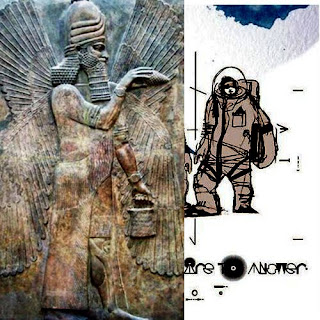
Existence is an ironic twist of metal, flesh and concrete. Human beings have steered further and further away from the organic roots that once made the world turn. The world now turns with machines, money, laboratories and chemicals. As humans venture towards this constantly expanding verse, they turn towards the ultimate artistic canvas, the creation of human beings through non-natural means. The concept of human dignity and equality is a drowning effect in a world where humans are identified through id badges and numbers. Not too long ago, though the existence of time is debatable, African Americans pushed through a Civil Rights Movement throughout the 50’s and 60’s that is very much relevant today. The new human movement is not so much to attain civil rights, as much as it is to attain and understand a profound sense of universal and planetary respect for life. As human beings constantly seek for truth, they come across many tests of ethical morality. Sometimes they pass with flying colors, and sometimes they fail hard. Of course, let it be understood that passing and/or failing is an abstract concept, much like our very own existence. There is something always to learn whether pass or fail. Human history illustrates a series of circular conditions carrying the thematics of equality and the struggle to reach such a thing. Our modern world will tell us that not everyone is equal. Our media will also tell us that some of us are meant for greatness while others should be disposed of through systematic killing. The dignity of human life and its preservation seems to always be in some sort of peril. If superheroes existed (and I’m not saying they don’t), their battles would be against scientists, doctors, insurance companies, corporations and some of the very humans they are sworn to protect. The very things humans create are ironically the very things that endanger them.
Eugenics anyone?
A quick definition of Eugenics will tell us that the selective breeding, when being directly applied to humans is a function to improve the species. Through our microscopes and Bunsen burners, we can see new possibilities in playing God within the universe of genes and atoms. Perhaps through cloning and genetic manipulation, humans can create a new and improved version of themselves. Perhaps, if taken globally, we can create a new class of soldier, genetically modified to be faster, stronger and endure pain in a logical manner. Think of the possibilities. Through the concept of Eugenics, humans can create improved classes of clones that can clean for us, cook for us, work for us, a class that would never become sick and so on. If one were to simply think of this concept, one can’t help but to trace this idea back to genocide. Perhaps it’s a stretch, but we can also excuse those citizens that aren’t up par and systematically kill them as well?
Utilitarian beliefs will lead us to understand that the worth of an action morally, can only be measured by the outcome of such an action. Meaning that if killing one, will save one hundred, that life is worth less than those of the others. This is a fine and accepted concept, as long as you are not that one individual being sacrificed in the name of others. How can one life be put on a scale and weighed for its worth? Aren’t all humans microcosmically connected through the stream of life? If this idea is so, then even a murderer is necessary for those who need such a thing in their lives. That means, that the mentally retarded, the lazy, the uninspired, the rude, the hopeless all play a part within the collected lives of humans and non-humans alike. The thing we do to animals and trees is the thing we will begin to do to the copies of ourselves. Eventually, Clones will be manufactured to serve as the obedient socio-economic class known as slaves.
Haven't we seen this cycle before?
What happened to the golden rule of universal ethics?
There are various philosophical theories that excuse universal ethics all together. The skeptic, who is wary of all things that have not been branded into their unconscious minds, is a good beginning example. Skepticism in practice will portray all given in information as questionable. This on it’s own account is good and bad. It’s not so great when new, potentially dangerous solutions are applied to existing problems. These particular thinkers will question the very value of the presented solution. Skepticism anchors us when historic information is presented that may shed a light into the grand human mystery of origin per se. This on it’s own is the doctrine that does not embrace true knowledge. In fact is a doctrine of constant doubt. Relativism, another set of philosophical theories will tell us that decisions, thoughts and actions are relative. This will propel us towards a particular line of thinking that states that there is no absolute truth. The truth is relative from person to person and from thing to thing. In this theory, which is very much absent from any Universal ethic, gives carte blanche to all human behaviors regardless of esteemed morality. It justifies all behavior pitting human beings as acting and reacting in relation to their environment and cultural upbringing. Ultimately, everyone could be right, as long as they conduct themselves relative to their environment. As we glide over the concepts of Nihilism, which at its base understanding is the theory that life is without purpose and meaning. Morality is a vague concept as it takes the extremes of skepticism and relativism in an unlikely marriage. Since it holds morality as nonexistent, it states that there are no preferred actions or proper choices. With this being said, these philosophical theories leave life empty and in much more danger than the followers of such concepts would believe.
We’ll circle back to Utilitarianism, which places the true moral worth of an action by its outcome. Leaving scenarios like killing one to save one hundred as an open play so to speak. Accompanying Utilitarianism, we find Formalism, which on its own account limits outside perspective when looking at particular fields of study. For example, a Formalist sees a painting as having no real meaning beyond the intent of its creator.
Limiting isn’t it?
Voluntarism states that the very will of an individual is and should be the only driving force in ones life. While this in terms of open freedom is much more inclined to view the universe through ones own will. But isn’t this on its own account an entrapment within the aspect of limited perspective? If one is guided by their will, and their will alone without the application of the ‘golden rule’, one is found once again making decisions based on their belief system, their moral etiquette within their relative existence.
What about Natural Law?
The philosophy of natural law will dictate that the world naturally has certain inclinations. Through those natural inclinations our world sees definition. Natural law, within the doctrine of the Catholic Church holds the views set forth by their model teacher, Thomas Aquinas. Aquinas organized that humans crave social structure. They naturally want to be accepted by others and strive to live amongst identifiable points of reference. Aristotle, being a great inspiration to Aquinas, saw man-made cities as living organisms. Much like humans, the very cities they live in are very much alive, forever evolving and moving forward. Through the concept of objective reality, truths are objectively discovered rather than simply created.
This concept also pits us within the realm that all things, even those, which are discovered, are created in some fashion. God, in his/her all-knowing stance is simply a creation of the original thinker, is he not? Within this parameter, we can feel that a particular need for universal acceptance is needed. If we are to advance throughout the timeless linear cycles of existence a particular amount of responsibility and respect is required.
How can we enslave the very things we create?
In its timeless cycle, the master of something always becomes the slave and the slaves become the masters. Thus the cycle, while endless, is not without its perfect sense of irony. As creators, being made in the form of our own creator, we are responsible to everything around us. Our reality, though perceived through the sockets of sight is individual from person to person. Meaning, there is not simply one reality to perceive. There are many realities all layered endlessly one on top of another. Those who follow a particular philosophical doctrine are in the right place for them, while others sitting on the other side of that particular angle view them as being wrong.
Ironically, they are both right. What a person believes to be true is in fact true. Much like the concept of relativism, person’s personal truths will be a compliment to their accumulated life. The idea is to search within and find that undeniable source of universal love and appreciation for not only the things around us, but for the very love one has within their hearts.
Then, and only then can true universal respect and understanding can be attained.




